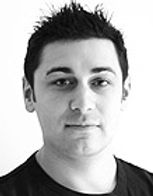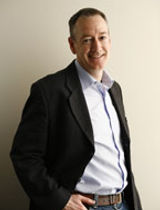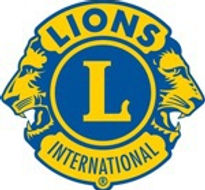
2011
October

September


May

March

Amy Mokady
iTeams Programme Director
It was a great pleasure to welcome Amy as a guest speaker at the E&E club where she introduced her successful “i-Teams” programme. i-Teams brings together leading University researchers with multi-disciplinary teams of highly motivated, entrepreneurial students and experienced business mentors to assess the commercial viability of new University inventions, technologies and product designs.
Fascinated by this fantastic opportunity, a group of students from across the Norwich Research Park established the first UEA i-teams in spring 2012 .
Now, UEA is planning to adapt the i-teams programme by 2014 with Amy’s support.
Amy Mokady is a serial entrepreneur who has held senior sales, marketing and business development roles in both start-ups and multinational companies, and now focuses on turning university research into practice.
She was co-founder and marketing director of STNC Ltd., a venture-backed start-up which developed browsers for mobile phones and was acquired by Microsoft in 1999. Following roles working at the forefront of the mobile industry at Microsoft, QUALCOMM and 3, more recent start-ups include Pogo Mobile Solutions (developer of the nVoy smartphone), Light Blue Optics (an industry leader in pico-projectors), Mo.Jo (online participation in new ventures) and Audio Analytic (sound analysis and recognition).
Since 2005 Amy has been increasingly involved in the commercialisation of University inventions, and in helping the next generation of entrepreneurs develop the appropriate skills. She founded and runs the i-Teams Programme at Cambridge University and in London, where multi-disciplinary teams of students work to assess the best route to market for new university inventions. She is a Trustee of the Humanitarian Centre which works to link the academic community to international development practitioners, and of Birthlight which translates the latest anthropological and medical research into practical ways of helping mothers and babies. Amy is a Visiting Industrial Fellow at the Cambridge University Computer Lab as well as an Entrepreneur-in-Residence at Anglia Ruskin University and a Board Member of the Cambridge Angels. She holds a degree in Mathematics from Trinity College, Cambridge.
Dr Adam Rutherford
Editor at Nature Science Journal
Renowned science broadcaster Dr Adam Rutherford gave a talk to a packed lecture hall on the subject ‘What is Life?’ where he discussed the basis for his most recent book, ‘Creation.’ Presented in two parts, entitled ‘The Origin of Life’ and ‘The Future of Life’ respectively, Creation tells the story of what life is and where it originates from through 4 billion years’ worth of historical discovery. The second part takes a look at living technology and how the phenomenal advances made in genetics over recent decades have revolutionized our modern lives, amid a fair degree of controversy.
In addition to his contributions as editor at the scientific journal Nature and writing for the Guardian newspaper, Dr Rutherford also wrote and presented BBC Four’s ‘The Gene Code’ (April 2011) and the award-winning documentary series ‘The Cell’ (2009.)
Dr Richard Gallagher
Texere Publishing
Dr Richard Gallagher came to speak with the E&E club about his career. After graduating at the University of Glasgow with a PhD in Immunology, and post doc positions in Dublin, his career progressed into editing Immunology Today. From there Richard worked as office head and senior editor at Science magazine, before moving on to becoming biological editor, and later publisher at Nature magazine. Richard became editor and publisher of The Scientist magazine in 2002. Since working at The Scientist, he has now set up a number of businesses, including launching a new magazine The Analytical Scientist. The positions Richard has held, and the journey of how he has progressed through his career have allowed him to give invaluable advice to research scientists who wish to pursue a career in science communication and business start-ups.
Dr Will Spooner
Founder & Technical Director of Eagle Genomics
On 18th May 2011, the founder and technical director of Eagle Genomics, Dr Will Spooner delivered a talk on lessons for life science businesses. He also offered a valuable insight into the types of opportunities available to those wishing to make a career move from academia into industry.
Eagle Genomics (named after the Eagle Pub in Cambridge where James Watson and Francis Crick announced their discovery of the DNA double helix) specializes in bioinformatics, computational and systems biology. Some of their major clients include life sciences companies who require access to genomic data in order to discover new products, ranging from drugs to personal hygiene products. Staff at the company are highly experienced in genomic data analysis, including Next Generation Sequencing (NGS.)
Robert McKibbin and Alistair Mackie
Lions Clubs International (Norwich District)
On 2nd March 2011, two members from Lions Clubs International, the world’s largest voluntary organization, came to UEA to discuss their work within the Norwich District Lions Club. The Lions Club works with the local community to help those less fortunate and raise money for charitable causes. The Norwich District club is one of more than 46,000 clubs worldwide comprising well over a million members. Lions has a varied and dynamic history, and was established in 1917 in Chicago, Illinois, USA. The Clubs’ primary goal was to fight blindness through extensive vision screenings and raising awareness about eye diseases. Today, its projects have expanded to assist the elderly and provide youth volunteer opportunities.
http://www.lionsclubs.org/EN/index.php